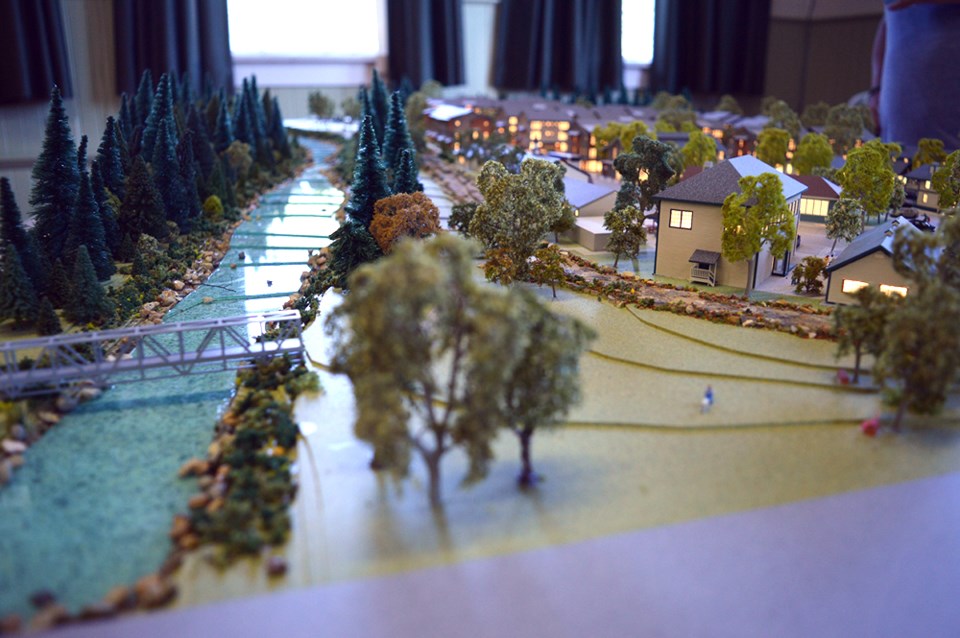A Britannia Beach residential-commercial development is just about approved, as it has passed third reading at the Squamish-Lillooet Regional District.
It is rare for items that pass third reading to not become adopted.
Macdonald Development’s proposed housing project would bring 60 for-purchase townhomes at market rate, 13 market live-work townhomes, and 14 rental apartments to the land in front of the mining museum.
During its regular board meeting on June 27, the SLRD voted in favour of amending zoning bylaws and Official Community Plan regulations that would allow the project to move ahead.
One new condition was the inclusion of electric car charging stations.
The motion passed by directors asks that “a requirement of issuing a development permit on the commercial lands be that a minimum of ten electric vehicle charging stations be included.”
This was a suggestion brought up by an audience member during a recent public hearing earlier this month. During that forum, just about everyone who spoke expressed support for the development. Dozens were in attendance.
While development has cleared a major hurdle, Macdonald still needs to buy a portion of Crown land in order to guarantee the project.
This portion of land was initially owned by Macdonald, but it was later transferred to the province. The company is hoping to re-acquire that property so it can start building in the area.
The development has come a long way.
The idea has been floated for years, with varying levels of support. However, this iteration of the proposal appears to have gained favourable reviews from local residents.
Previously, Britannia residents said they did not want a drive-thru restaurant in the development.
They also wanted the community hall to be public and accessible to all.
There were also calls for regulations that would ban adult entertainment and gambling, though to be clear, these two things were never part of the proposal.
All these points have been addressed by the developer.
However, what appears to remain an ongoing concern is how flood protection costs will be shared throughout the area.
The SLRD is instructing staff to examine cost-sharing formulas and has asked Macdonald to consider putting in a $285,000 deposit as insurance in case a flood occurs before enough tax dollars have been collected to pay the costs of a natural disaster.
So far, officials are hoping residents who move into the new development will pay the lion’s share while current Britannia locals shoulder 25 per cent at most.
Damage for what the regional district considers a one-in-50-year flood would cost about $425,000, the SLRD estimates.
The total annual costs for flood mitigation, including maintenance of a Geobrugg safety net, are estimated by the regional district to cost about $23,200, a report said.



